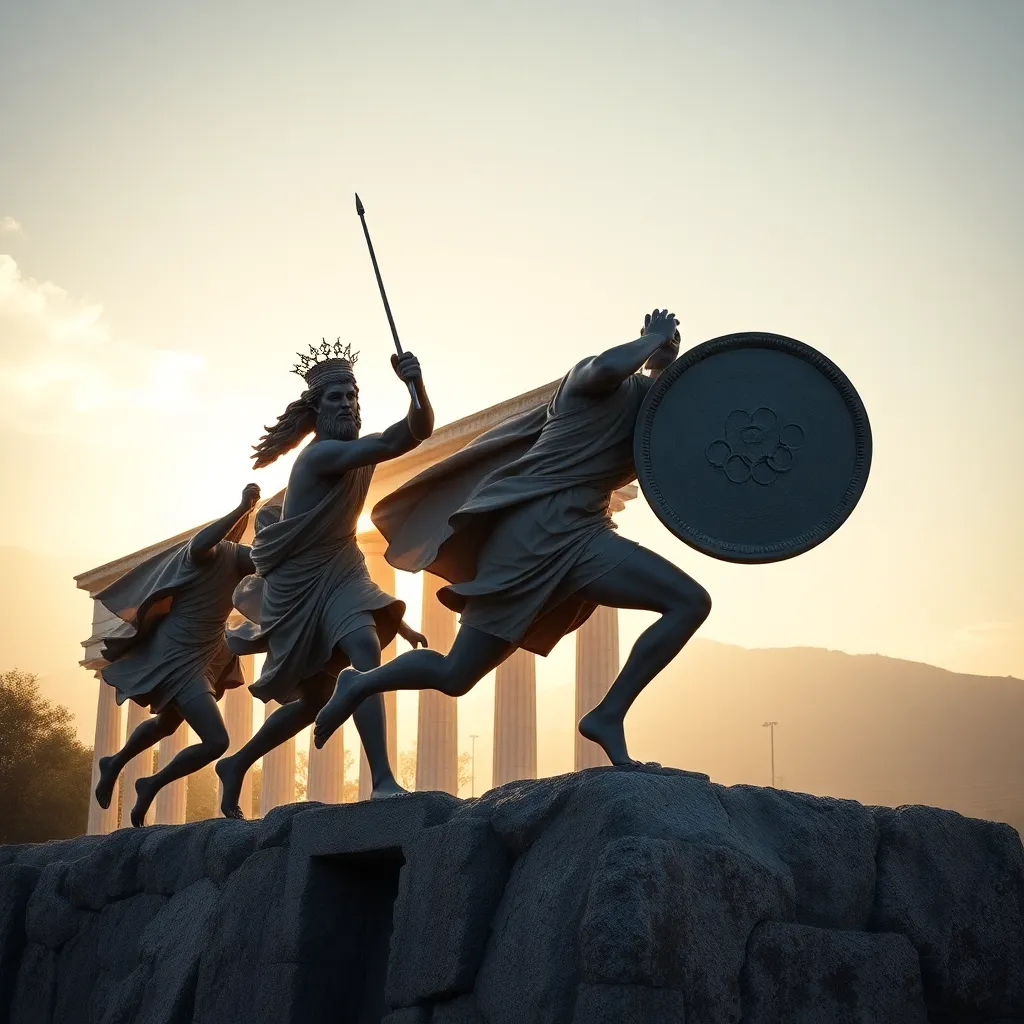The Olympians and Their Influence on Sports: The Origins of the Olympics
I. Introduction
The Olympic Games stand as one of the most prestigious sporting events in the world, drawing athletes and spectators from every corner of the globe. Originating in ancient Greece, these games have evolved into a modern celebration of athletic prowess and international unity.
In the realm of sports history, the importance of the Olympics cannot be overstated. They represent not only a competition of physical abilities but also a rich tapestry of cultural significance and mythological heritage.
This article aims to explore the origins of the Olympic Games, their historical context, and the influence of Greek mythology on this grand event.
II. Historical Context of the Ancient Olympics
The origins of the Olympic Games can be traced back to 776 BC in Olympia, Greece. Initially, a religious festival honoring Zeus, the Games were a manifestation of the Greek ideal of physical excellence.
Olympia, as a sacred site, played a crucial role in the celebration of these games. It was home to the grand Temple of Zeus, which housed a colossal statue of the god. Athletes competed not only for glory but also to pay homage to the divine.
The Games were deeply entwined with Greek society and culture, serving as a unifying event for the often-warring city-states. They provided an opportunity for peace, allowing athletes to travel and compete in a festival that transcended local rivalries.
III. The Founding Myths and Legends
The mythological origins of the Olympics are rich and varied, with Zeus at the center of many tales. According to one legend, the first Olympic champion was Coroebus, a cook from Elis, who won the sprint in 776 BC.
Key figures in Greek mythology associated with the Games include:
- Zeus: The king of the gods and the primary deity of the Olympics.
- Peleus: Father of Achilles, who was said to have competed in early athletic contests.
- Hercules: Often credited with establishing the Games and recognized for his remarkable strength.
Mythology significantly shaped the perception of athletes, elevating them to heroic status. Victorious athletes were often seen as favored by the gods, bringing honor not only to themselves but also to their city-states.
IV. The Structure and Events of the Ancient Olympics
The early Olympic Games featured a limited number of events, with the most notable being:
- Stadion: A short foot race, the most prestigious event.
- Pentathlon: A combination of five events: running, long jump, discus, javelin, and wrestling.
- Wrestling: A central event that tested strength and technique.
- Boxing: A brutal contest where fighters fought until one could no longer continue.
- Chariot Racing: A thrilling event that showcased both skill and risk.
Individual athletes were often seen as representatives of their city-states, and they underwent rigorous training to prepare for competition. The significance of victory was immense, with champions receiving olive wreaths and enduring fame, often immortalized in poetry and statues.
V. The Evolution of the Olympic Games through History
The transition from the ancient Olympic Games to the modern Olympics began in the late 19th century. The revival was spearheaded by figures like Pierre de Coubertin, who sought to promote international understanding through sports.
Key milestones in the revival of the Games include:
- 1896: The first modern Olympic Games held in Athens, Greece.
- 1900: The inclusion of women in the Games for the first time.
- 1960: The first Olympics held in Africa, in Rome.
The impact of the Olympics on global sports culture has been profound, establishing a competitive framework that has inspired countless international sporting events and organizations.
VI. The Role of Olympians as Cultural Icons
Ancient Olympians were more than just athletes; they were cultural icons that influenced societal values and ideals. Their dedication to physical excellence and the pursuit of glory resonated deeply within Greek culture.
The concept of athletic excellence, as exemplified by figures like Milo of Croton and Leonidas of Rhodes, set standards for personal achievement that echoed through generations.
In modern times, Olympians such as Usain Bolt and Michael Phelps serve as role models, embodying the spirit of competition and perseverance while inspiring future athletes worldwide.
VII. The Lasting Impact of the Olympics on Sports Today
The influence of the Olympics extends far beyond the Games themselves. They have shaped international sporting events such as the FIFA World Cup and the Commonwealth Games, fostering global competition.
The development of sports disciplines and athletic training has been significantly informed by the Olympic movement, with an emphasis on scientific approaches to performance and nutrition.
Moreover, the Olympics act as a platform for global unity and competition, transcending national borders and promoting peace through sport.
VIII. Conclusion
In summary, the Olympic Games hold a significant place in both sports history and cultural heritage. They represent a unique blend of competition, mythology, and societal values that has endured for centuries.
The legacy of the Olympians continues to inspire athletes today, serving as a reminder of the power of sports to bring people together and celebrate human achievement.
As we look to the future, the Olympics will undoubtedly continue to evolve, maintaining their crucial role in shaping the world of sports.




